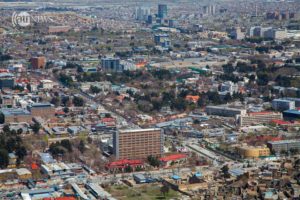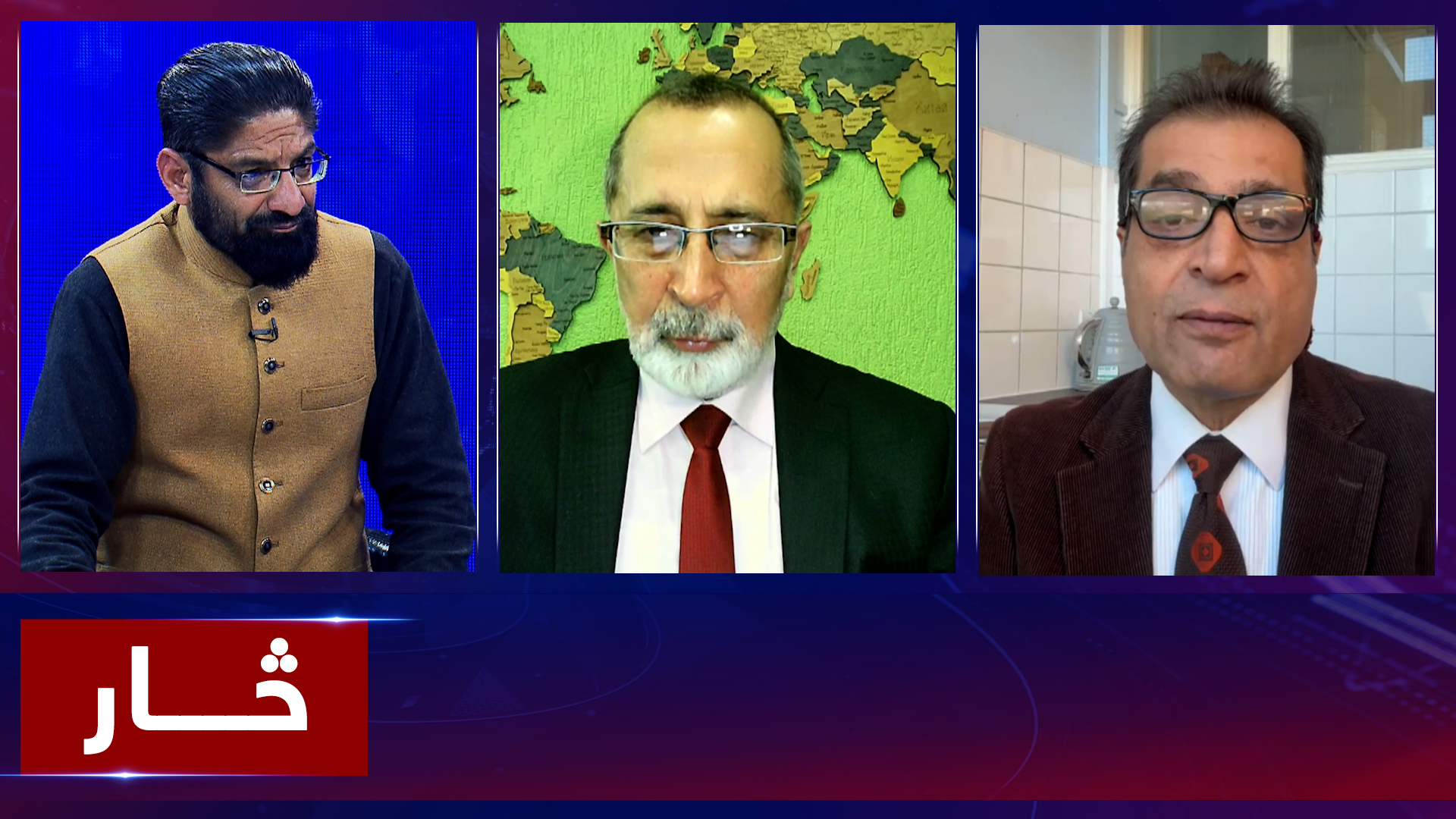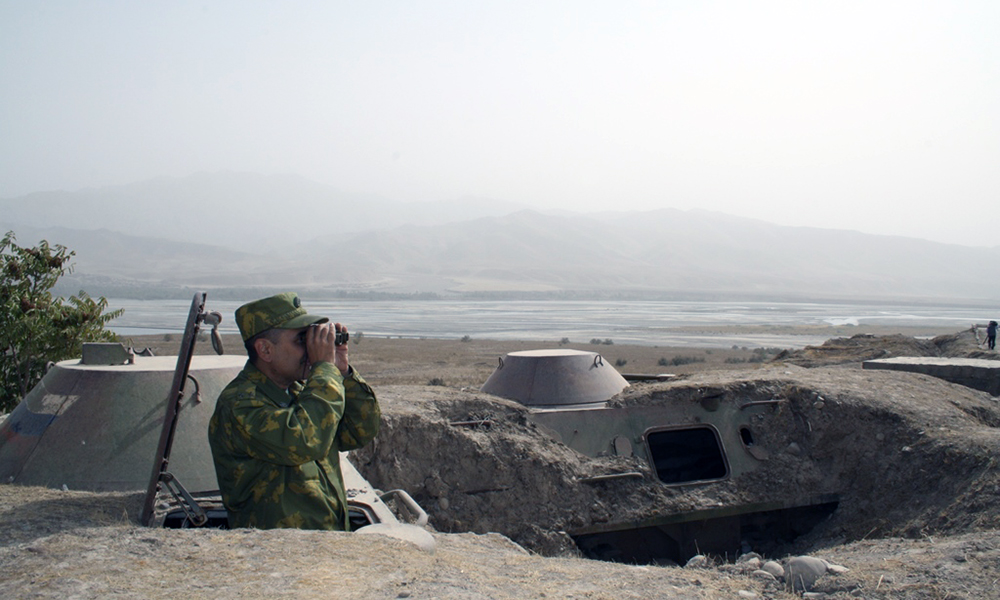Latest News
Amnesty International urges Afghan gov’t prioritize release of women prisoners

 The Amnesty International Friday urged the Afghan government to take immediate steps to implement President Ghani’s decree to release prisoners to control the spread of COVID-19.
The Amnesty International Friday urged the Afghan government to take immediate steps to implement President Ghani’s decree to release prisoners to control the spread of COVID-19.
The organization called on the authorities to prioritize women prisoners.
It said as the number of cases in Afghanistan rises, there are fears that prisoners in overcrowded detention facilities, often where up to five people are squeezed into a single cell in unsanitary conditions and without access to adequate health facilities, are at high risk of infection.
“Ten days have passed since Afghanistan’s President ordered the release of prisoners and nothing has happened. Every day, the risk to them rises. At particular risk are women prisoners, many of whom have children with them. There is ongoing discrimination against women and girls in general in Afghanistan,” said Biraj Patnaik, South Asia Director at Amnesty International.
He noted that this discrimination beside many other challenges makes women least important, emphasizing, “The government must take immediate measures for the release of these women and for them to be safely relocated to limit the risk to them,”
Afghan civil society groups have raised concerns about the conditions of women prisoners. In an open letter to President Ashraf Ghani this week, the Afghan Women’s Network pointed out that many women prisoners at risk have not committed serious crimes or are yet to be convicted. Many of them are also mothers, with their children in custody with them. Like elsewhere in South Asia, Afghanistan’s prisons are overpopulated.
 Afghanistan faces particular challenges in dealing with the COVID-19 outbreak given the continuing conflict in the country, poor health infrastructure with just 300 ventilators, a shortage of doctors and other trained health workers, and a lack of testing facilities.
Afghanistan faces particular challenges in dealing with the COVID-19 outbreak given the continuing conflict in the country, poor health infrastructure with just 300 ventilators, a shortage of doctors and other trained health workers, and a lack of testing facilities.
With a lockdown imposed in parts of the country, including Kabul, daily wage earners, internally displaced people and other marginalized are also at high risk – faced with the cruel choice between infection and starvation, in a country where the government is dependent on international assistance for three-quarters of its national budget.
The western province of Herat is the epicenter of the COVID-19 crisis, followed by Kabul, the capital. Both Herat and Kabul are where the majority of women prisoners are located.
To date 521 cases have been reported across the country, affecting 27 out of 34 provinces, and resulting in at least 15 deaths.
Afghanistan does not have the resources it needs to deal with this crisis. This makes it more important that the government takes whatever steps it can to limit the spread of the virus, starting with groups who are most at risks such as prisoners including women and marginalized.
“It’s also crucial that the international community steps in to bolster the Afghan government’s efforts. Few countries have suffered as much as Afghanistan in recent years. The people of Afghanistan must not be abandoned at this crucial moment when they urgently need the world’s attention,” Biraj Patnaik said.
Latest News
Saar: Russia’s relations with Islamic Emirate reviewed
Latest News
Tajikistan says two soldiers killed in clash with militants near Afghan border
Business
Afghanistan’s first aluminum can factory launched in Herat with $120 million investment
Mullah Abdul Ghani Baradar, Deputy Prime Minister for Economic Affairs, laid the foundation stone of the “Pamir” aluminum can production company at the industrial parks of Herat on Thursday.

Afghanistan’s first aluminum can manufacturing plant was officially launched on Thursday in Herat province, marking a significant step toward industrial development and economic self-reliance.
Mullah Abdul Ghani Baradar, Deputy Prime Minister for Economic Affairs, laid the foundation stone of the “Pamir” aluminum can production company at the industrial parks of Herat on Thursday.
According to officials, the Pamir factory is the first of its kind in Afghanistan and is being established with an investment of $120 million. The project will be built on 16 jeribs of land within Herat’s industrial zones.
Once completed, the factory is expected to create employment opportunities for around 1,700 Afghan citizens. Officials say the project will play a key role in boosting domestic production, reducing reliance on imports, and strengthening the national economy.
Authorities described the launch of the project as a clear sign of growing investment in the industrial sector and ongoing efforts to promote economic self-sufficiency in the country.
-

 Latest News2 days ago
Latest News2 days agoAfghanistan exports 10 containers of batteries to Saudi Arabia and UAE for first time
-

 Latest News2 days ago
Latest News2 days agoPakistani cleric condemns lifetime immunity for Army Chief as un-Islamic
-

 Latest News4 days ago
Latest News4 days agoAfghanistan signs 30-year deal for marble mining in Daikundi
-

 Latest News4 days ago
Latest News4 days agoBush Institute criticizes Trump administration’s Afghan immigration freeze
-

 International Sports2 days ago
International Sports2 days agoAriana News to broadcast key AFC Champions League Two clash
-

 Regional3 days ago
Regional3 days agoPakistan agrees to $4 billion arms deal with Libyan National Army
-

 Health2 days ago
Health2 days agoAfghan Health Minister hails India visit as new chapter in bilateral ties
-

 Latest News1 day ago
Latest News1 day agoPakistan’s actions target militants, not religious sites: Khawaja Asif

















